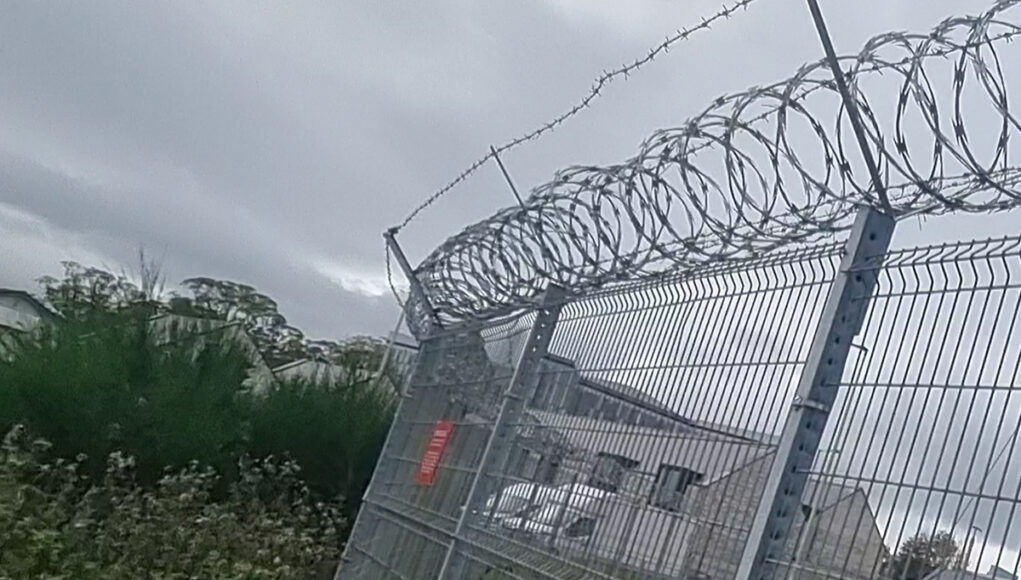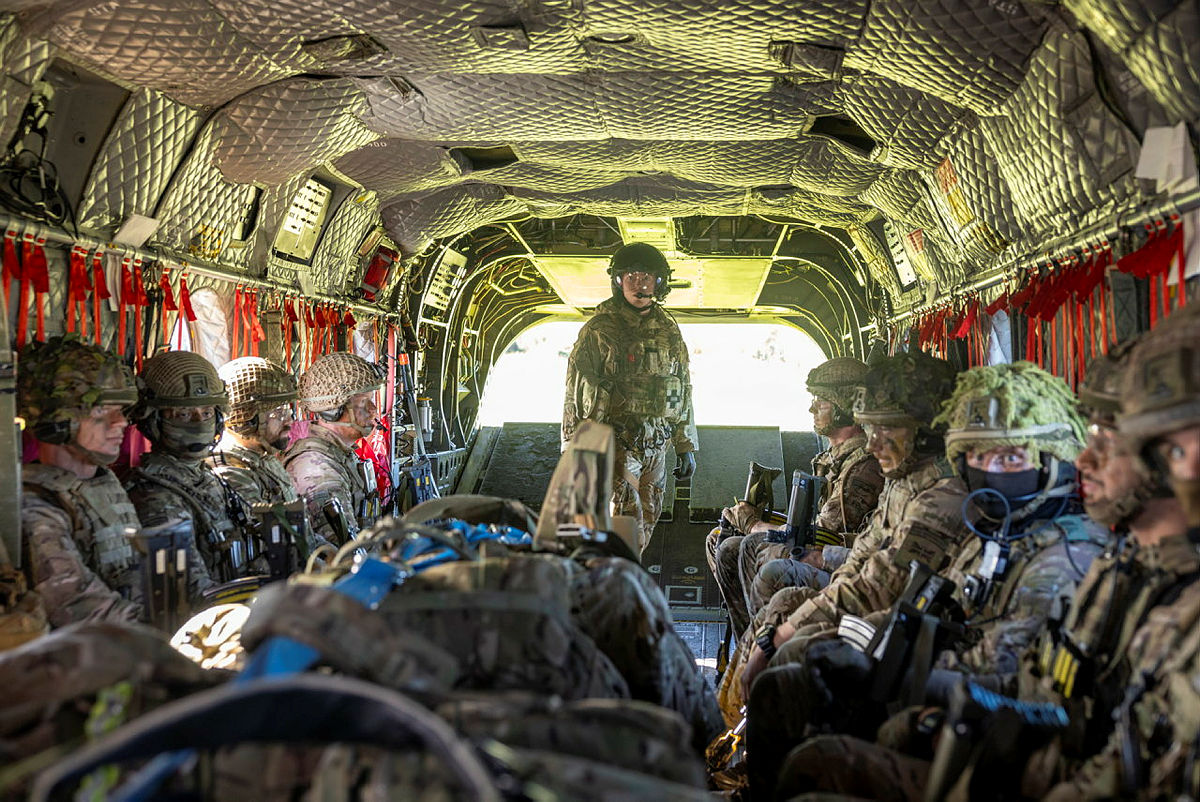New figures released to Parliament show a clear upward trend in detected break-ins at several UK military sites, prompting assurances from ministers that security across the Defence estate is being tightened after years of what they describe as under-investment.
Responding to multiple written questions from James MacCleary and James Cartlidge, Defence Minister Al Carns released annual data for RAF, Royal Navy and Army bases, alongside updates on the ongoing security review triggered by the June breach at RAF Brize Norton.
- For the RAF, Carns confirmed eight detected break-ins in 2025, up from six in 2024, five in 2023 and three in 2022.
- The Army saw five incidents in 2022, five in 2023, none recorded in 2024 and three in 2025.
- Royal Navy bases recorded almost no activity across the period, with only a single incident in 2023.
Carns said the figures reflect cases where an incident was recorded as trespass or an intruder with evidence of forced entry, and linked the recent rise to stronger reporting and updated guidance. He argued that security is being reinforced across the estate, describing the department’s current effort as “decisive action to strengthen security … reversing years of under-investment and focusing our resources on our highest priority sites.”
The Government is deploying in-year funding for physical upgrades, increasing patrol visibility, and installing new systems such as the Immediate Threat Mitigation Solution, which Carns described as advanced surveillance technology. Digital modernisation worth £20 million is underway, alongside recruitment drives to expand policing and guarding capacity. He also pointed to “enhanced vigilance, updated guidance, and improved reporting” as factors making it easier for personnel and contractors to raise concerns.
On trespass at training areas, Carns set out steps ranging from more patrols to CCTV maintenance, as well as the Respect the Range public-safety campaign intended to deter recreational access to live-fire sites.
MacCleary and Cartlidge also pressed for updates on the security review ordered after the Brize Norton breach. Carns said all military sites have now been assessed and prioritised, and that a rolling programme of site-specific reviews is underway. Ministers, he said, are receiving frequent updates. He added that the review is progressing “at pace” and highlighted additional measures being piloted, including restricted airspace over key locations and expanded use of remotely piloted aerial systems.
He reiterated the consistent line across the written answers: “Safeguarding the Defence estate remains a key priority,” and Defence will “use all available levers to take swift action wherever and whenever security is threatened.”














Shoot on sight👍
At a handful of places I can think of, I think they would. But not your typical Barracks or RAF Station.
Nah! claymores every 200 yards,towers with gimpys every 500 yards let’s not mess about here😂 the great unwashed would soon get the message👍
They would. And I’d support it.
The Royal Marine pickets used to patrol with pickaxe handles.
Everyone used to patrol with pickaxe handles, even REME!
Somehow, I doubt every word.
He lists the three services, but many sites are not services but are MoD, such as DSTL sites, Abbey Wood, the AWE sites, and other DE&S sites like the DM facilities and POL depots. What about them?
“alongside recruitment drives to expand policing and guarding capacity”
How many? When? By how much? Details….easy to hide behind such statements.
We had an MDP chap on here a while back describing how MDP have been reduced, which I myself have tracked over the years with many sites losing a MDP presence. Apart from RN sites, MDP tend to be at MoD establishments, not Army or RAF sites, which are usually covered by a mix of MPGS, soldiers on stag, and the RAF Police.
Man’s best friend can be an Intruder’s worst nightmare. All those XL Bullys have got to go somewhere.
What was the outcome of the military investigation into the recent security breach at Brize Norton? Anyone in command held to account?
I remember going to a depot where they had war dog’s in between the fencing & believe me, no one would get in there! I also remember the useless civvy security guards the MoD had all over the place, no back handers involved there, obviously 😉
Maybe instead of complaining about the protestors in a democratic country, the MOD should be using it to strengthen their hard security. If there was ever an attack on the UK the first thing an enemy would do would be to insert special forces to raid airbases and destroy planes on the ground. If protesters can get in so easily then highly trained forces would find it a breeze.
The perception is that Keir Starmer is weak, and by extention, the United Kingdom is weak.
It’s currently the only country I’m aware of that is actively allowing and even encouraging people to have a pop at it; the only country I am aware of that repels marches under its own flag but escorts marches under foreign flags; and that is educating its own children about the evils of its past, while totally disregarding and even censoring the horrors happening across the world as we speak (while making us feel obligated to provide a vague “foreign aid” budget which seems in many cases to perpetuate these horrors by maintaining the status quo in affected countries).
People infiltrating our military bases under foreign flags should be the final straw. This is treason, plain and simple, but I’m willing to bet the trespassers see all due lenience based on political ideology, or physical characteristics, or both.
I agree with much of that, unfortunately.
Simple solution to this and lots of other issues is a technology called wami aka wide area motion imagery. Originally conceived by “the shop” in the USA this tech is basically a real life minority report but better. It was used to beat IEDs in Iraq etc. Lookup Gorgon stare and a book eyes in the Sky: The Secret Rise of Gorgon Stare and How It Will Watch Us All. With one tether ww2 style aerostat above any area you can watch an entire town small city even. Using ai the cloud and even the latest GPUs CPUs the system can tag a car and ask it to show you that cars movements going back as far as when it was deployed. Or how about draw a trip wire around the area of concern any movement alert. This is not a soda straw uav system imagine it takes 5 6 FPS at 100 200 megapixels then played back like a video you can zoom in on one area whilst multitasking other users. The simplicity is that it’s layered on a gis like Google earth so the possibilities are endless. Scary stuff
The sick truth is that all our so called police are looking after migrants outside hotels across the whole country… We are a shambles. People across the world can see what has happened to this great nation and it’s time something changes…
Another problem is we would never want to offend people so we just let anything happen and then complain…
Well said.
If we cant even keep out the amateurs, how far do you think the enemy pros have already penetrated? Give the sentries firearms, put up large clear signs that LETHAL FORCE may be used against trespassers. Doesn’t have to be a head or torso shot, aim for lower limbs. Court Marshal any sentry who does not shoot.